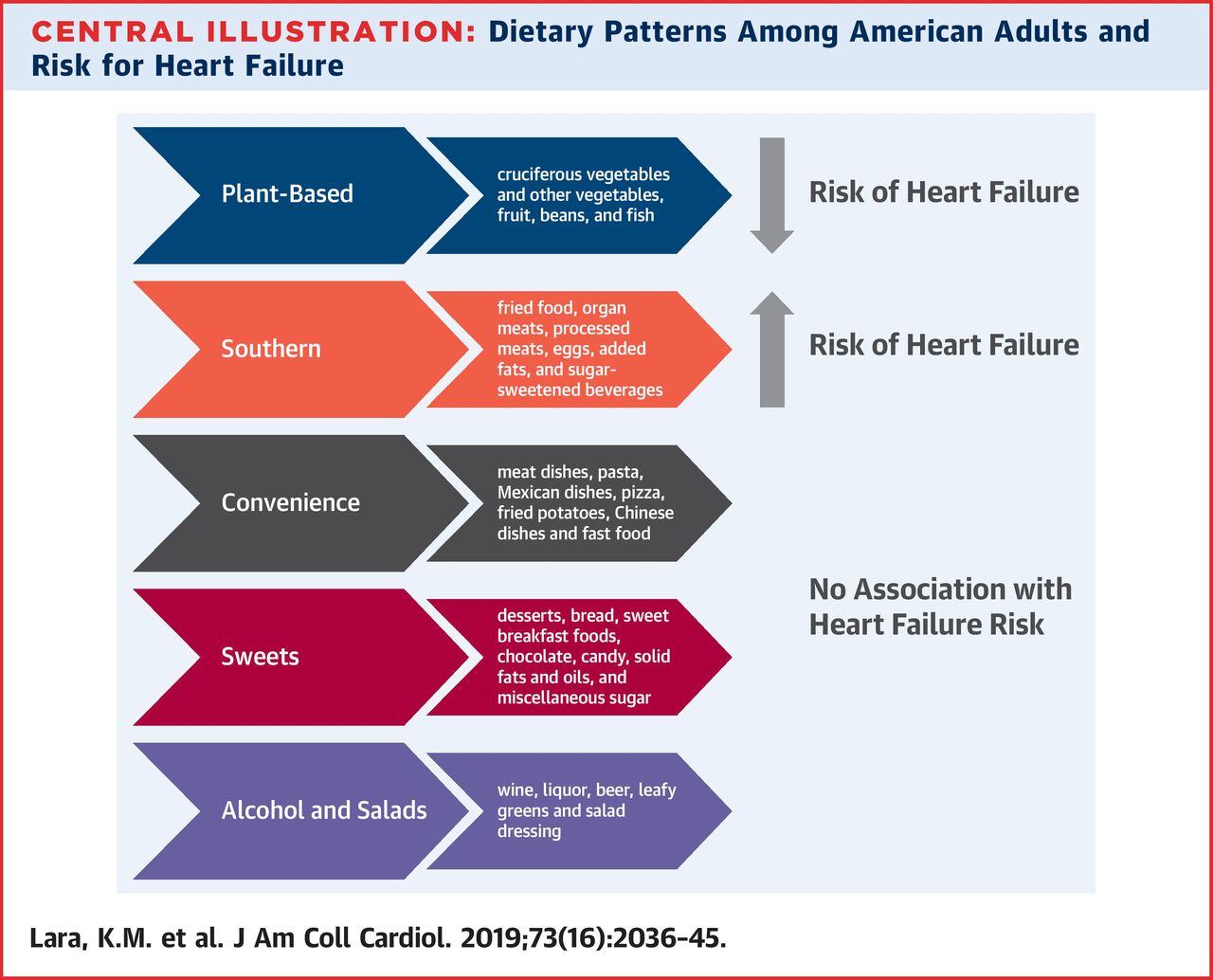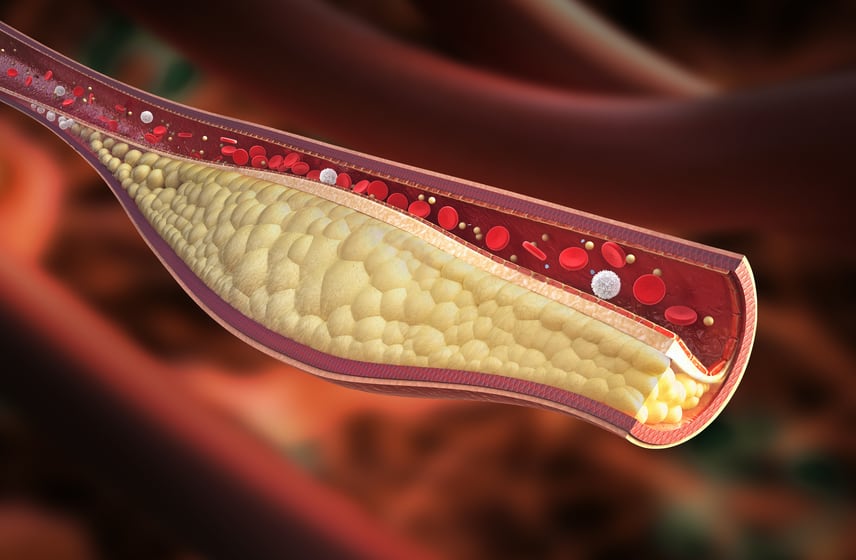The study, published in the Journal of the American College of Cardiology, looked at the association between five dietary patterns and risk of heart failure.
Researchers looked at the eating patterns of 16,608 adults without known heart disease or heart failure aged 45+ over an average period of 8.7 years.
The US researchers identified five diets within the participants and examined any association the diets had with any subsequent incidents of heart failure.
The diet types were:
- "Convenience" (heavily meat dishes, pasta, Mexican dishes, pizza and fast food)
- "Plant-based" (vegetables, fruit, beans and fish)
- "Sweets/fats" (heavy on desserts, bread, sweet breakfast foods, chocolate and other sugar)
- "Southern" (heavy on fried food, processed meats, eggs, added fats and sugar-sweetened beverages)
- "Alcohol/salads" (heavy on wine, liquor, beer, leafy greens and salad dressing)
During the study, 363 people were hospitalised for heart failure for the first time.
Researchers found a 41% lower risk of new heart failure hospitalisation for participants who followed the plant-based diet.
The Southern diet was associated with a 72% higher risk of being hospitalised owing to heart failure. However, when the Southern diet was adjusted for BMI, waist circumference, hypertension, dyslipidemia and other factors, the association was no longer statistically significant. This could mean that the Southern diet raises heart failure risk through factors such as obesity and abdominal fat.
The researchers discovered no statistically significant associations among heart failure risk and the other three dietary patterns.
"The need for population based preventive strategies for heart failure is critical," said Kyla Lara, lead author of the study. "These findings support a population-based dietary strategy for lowering the risk of incident heart failure."
A major strength of the study was the large, diverse sample size that included people from all demographics and socioeconomic backgrounds. A limitation was that diet was only assessed at the beginning of the study. As such, dietary changes may have occurred after the initial assessment.
"This study represents an important step forward in establishing a robust evidence base for the dietary prevention of heart failure," said Dong Wang, a research fellow at Harvard T.H. Chan School of Public Health, in a related editorial comment.
The British Nutrition Foundation’s recently published Task Force Report on emerging risk factors for cardiovascular disease, is available here: https://www.nutrition.org.uk/healthyliving/healthissues/tips-for-a-healthy-heart.html

‘Meat is not heart-healthy, but neither are all plant-based diets’
“The data suggesting that a plant-based diet reduces the risk of heart disease – and even regresses poor heart health – go back 30 years,” said Dr Gemma Newman, a UK-based GP and advocate of a plant-based diet. “The evidence is quite sound. It’s been published in peer review journals which have rigorous assessment.”
“In my opinion, based on the research, I don’t think meat is really a food that you could associate with heart health,” she said. “People are waking up to the fact that meat has to be less on the shelves if you’re going to be promoting heart health.
“I know the arguments saying meat contains saturated fats and ‘is it really as bad as all that?’. But I think that, yes, it still is.”
She added that for those “really wanting to keep eating meat, then it’s probably safe to have it one two meals a week”.
How should the food industry respond to the evidence?
The UK government’s healthy eating guidance can be found at:
Dr Newman said food brands looking to be heart-healthy should focus on the key elements of a heart healthy diet, made up of a mix of fruits/vegetables, wholegrains and legums, though they shouldn’t assume that plant-based or vegan always means heart healthy.
“Anything that’s essentially wholefoods, plant based and low or no oil would be really on-trend for healthy vegan. But you can’t say all the new vegan food options on the market such as refined flour, pastries and cakes are heart healthy because they are not.”
She added that only Vitamin B12, iodine, and DHA were under catered in a plant-based diet.
Source
‘Dietary Patterns and Precision Prevention of Heart Failure’
Journal of the American College of Cardiology





